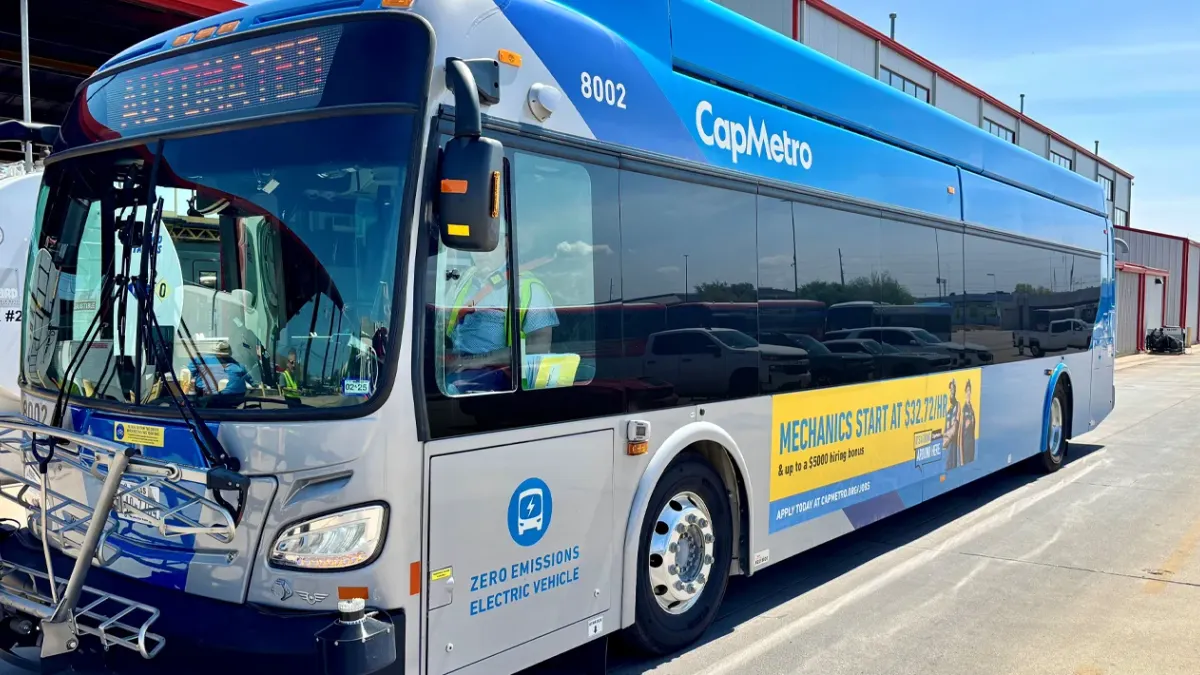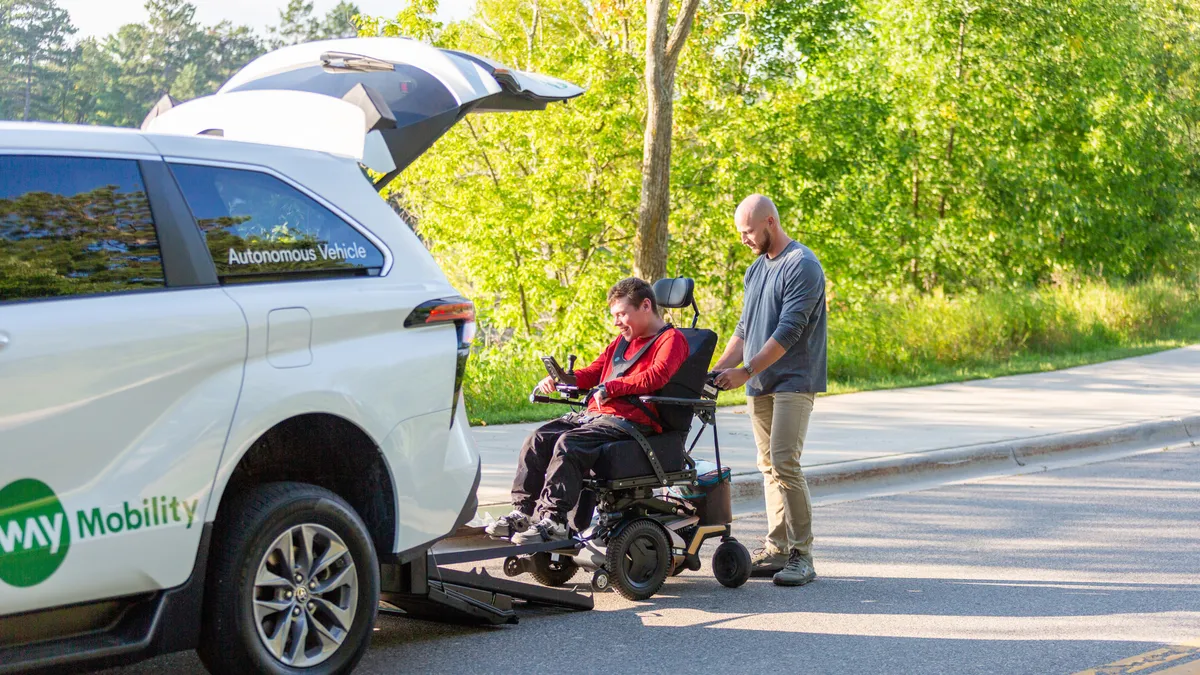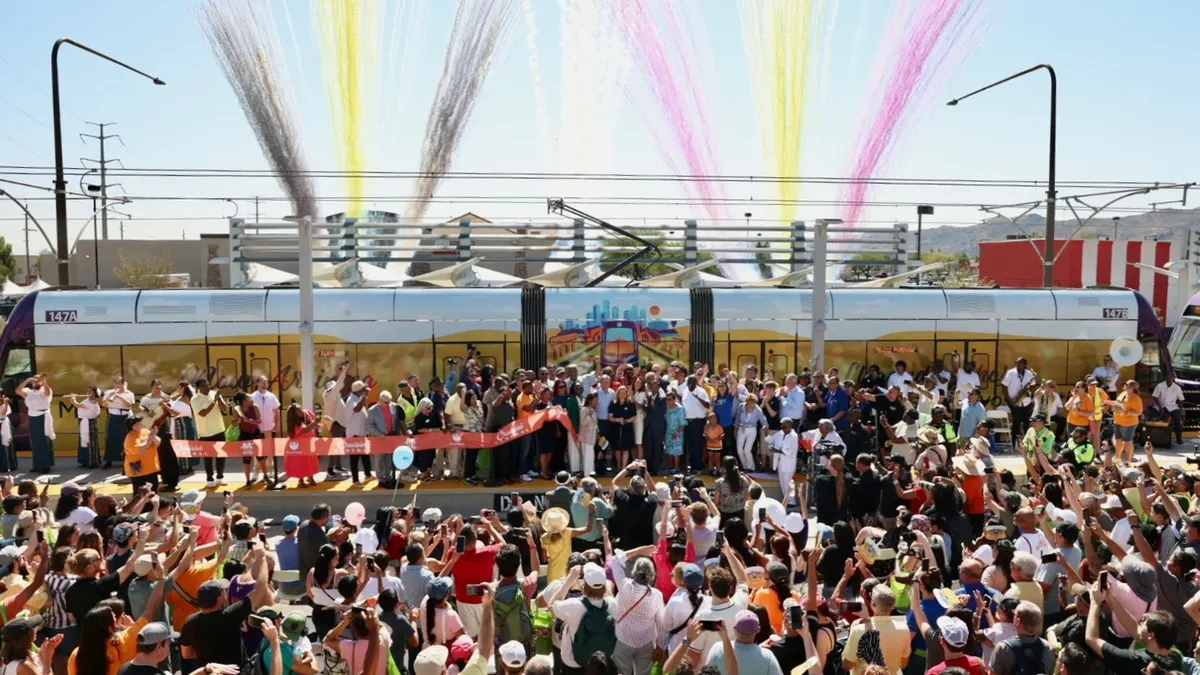A new kind of smart city is being planned in Thailand, with new-age technology like maglev trains being developed alongside educational campaigns, all to elevate the country's economy and quality of life.
The Japan-Thailand Millennium Town is the brainchild of officials at Global City Development, a Thai-based social enterprise firm that develops international mega-projects. It was officially unveiled at the Smart Cities New York conference earlier this month.
Set to be built 40 miles outside Thai capital Bangkok, organizers hope for a population of 20,000 in the 475-acre city, which will have separate zones for residential and commercial areas. Pannaritsara Chuenjitrabhiramon, chairman and CEO at Global City Development and a former United Nations (UN) official, said the idea has been in the planning stages for around 20 years and is in keeping with Agenda 21, the UN’s goals for sustainable development.
It is inspired in part by King Bhumibol Adulyadej, who died in 2016 after having "devoted all his life to human development," Chuenjitrabhiramon said. During his more than 70-year reign, he was viewed by many Thai people as a unifying figure — despite decades of rule by military juntas — dedicated to the welfare of his people.
The new smart city will be populated with Japanese retirees, who Global City Development senior advisor Robin Lewis said are often forced into retirement under rigid labor laws when they have plenty more to give.
"People are at the height of their powers, and social scientists are all agonizing over what the aging of the global population is going to do to the labor force, because they're looking at the input of young people in the labor force and how that's diminishing, but nobody's thinking about raising productivity at the other end of the labor force with people whose talents are still usable," he told Smart Cities Dive in an interview.
Features of the Japan-Thailand Millennium Town
Hover to see some notable parts of the planned smart community.Click on an icon to learn more
Those retirees will be brought to the Millennium Town and put to work on various projects, including helping the local population and educating them in a mutually beneficial setting. And it represents another aspect of the strong ties between Japan and Thailand, including economically.
"Here, we're talking about training people, we're talking about passing on knowledge and know-how to the locals,” Chuenjitrabhiramon said. "So you need to understand the locals' weaknesses and strengths, and you also need to understand the weaknesses and strengths of the people we want to bring in."
And that, the organizers said, is what will make the Millennium Town different from other planned smart cities, which in recent years has included the likes of Tempe, AZ and the planned Gramercy District in Ashburn, VA. Too often, they said, not enough attention is paid to educating and engaging with the people and is instead more focused on new technology. "That's the mistake that a lot of new cities have made," Lewis said. "Suddenly this thing pops up and it's all very modern and all very nice, but it has no relationship to people living 100 yards away."
"The smart city itself is only focused on technology and the digital things, but it doesn't really focus on human development," Chuenjitrabhiramon said. "We want to focus on human development, and that's why we decided we wanted this group of people to come and we want to make sure this city is comfortable, convenient and safe for them."
The Millennium Town also promises cutting-edge technology that up to this point has been dreamed of in cities. That includes a maglev train system, which Chuenjitrabhiramon said would join up with Bangkok’s public transportation grid and allow swift connections to and from the new smart city.
So far, maglev has been a pipe dream in North American cities, but seems to have received a renewed push in recent years from developers and private transportation companies like The Boring Company by Elon Musk, which has expressed interest in high-speed train service between Washington, DC and Baltimore as well as in Los Angeles.
But those behind the Millennium Town said using the expertise of retirees from Japan’s public transportation system — an innovative and well-financed network with a reputation as one of the best systems in the world — would help accelerate the maglev.
And rather than follow a private-sector model of being most concerned about guaranteeing a strong return on investment, Chuenjitrabhiramon said the Millennium Town can focus on getting the technology right. "When you leave this industry to the private sector, they only focus on profits," she said. "They will only build a train where there's a lot of people who live there because otherwise you don't get any people to ride the train, so you cannot make any money."
"The smart city itself is only focused on technology and the digital things, but it doesn't really focus on human development. We want to focus on human development, and that's why we decided we wanted this group of people to come and we want to make sure this city is comfortable, convenient and safe for them."

Pannaritsara Chuenjitrabhiramon
Chairman and CEO, Global City Development
The town will be financed and managed by Global City Development, but with the onus on residents to be in a “more or less self-governing system where residents are intimately involved with how the town unfolds," Lewis said. "We're going to be open to input, and we're going to be in the middle of an agricultural community that we want to be partners with and we want to be stakeholders with,” he added. Global City’s focus will be on leasing residential units, he said. The Millennium Town is also set for healthcare provided by Japanese companies.
Thailand is already home to several retirement communities, including those for retirees from Scandinavia and Japan, who live in the northern part of the country. Atchaka Sibunruang, a former minister in Thailand’s government and an honorary advisor to Global City Development, said that this will be so much more than a retirement community as it will do more to help the country’s economy.
"The project is going to be much bigger than the previous ones, with the development aspect attached to it,” she told Smart Cities Dive in an interview. "It's going to be more than just a retirement home. This is in line with government policy and will help the productivity and quality of business and the community. In many aspects, it's quite good for Thailand."
But there is plenty still to be done before shovels can go into the ground and the new smart city can be built. Lewis said that an organizational structure still needs to be put into place to run the town, but with many Japanese retirees "trapped in that old model of retirement where they do nothing," he said there should be plenty of interest once it starts to gather steam. In a speech at Smart Cities New York, Chuenjitrabhiramon said she hopes it can be a "template for similar efforts worldwide."



















